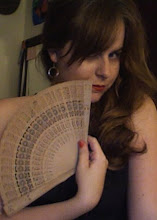
Steve and Bruce (the fake shark who never worked.) This picture makes me really, really happy.
Name three ways in which the publishers of the book and the producers of the film worked together to promote Jaws. How did they know that their logo for Jaws was successful? [Include names/companies in your answer.]
Doubleday books and the Zanuck/Brown team combined forces to promote Jaws in three ways:
1. Universal built up interest in the film as hardcover sales grew with casting releases, announcement of rights purchases, and interviews with the cast of Jaws.
2. Jaws was to be premiered in theatres six months after the Bantam paperback came out, in anticipation of the beach season.
3. Zanuck and Brown sent copies of the paperback all over the country to spread interest in the film adaptation.
Bantam Books, Universal and Zanuck/Brown knew their logo (an open mouthed shark rising from the depths, threatening a female swimmer) for the paperback of Jaws was a success when the desired audience saw both the violent and sexual elements in the design. This was confirmed when 2,ooo people stood in line for a sneak preview of the film that had been advertised only with the logo.
What is “blind bidding”? Why did exhibitors object to the proposed blind bidding for Jaws? Why was the blind bidding for Jaws called off?
Blind bidding is similar to block booking, in that a studio will sell their films as a lump group, with the most desirable films clustered with those that are untested. If a film was purchased sight unseen, it was a product of blind bidding.
Exhibitors objected to the proposed blind bidding because it was an escalation in Paramount's regular distribution terms. The exhibitors would be charged to run Jaws, had to contributed money to a national televised advertising campaign, and
Paramount had the choice of getting a 90/10 split of the box office recipts or seventy percent of the box office gross for the first four weeks.
The blind bidding was called off after the preview screening in Dallas. The Justice Dept (which only allows each distributor to blind-bid three films a year) decided that the exhibitors who had attended the private screening now had an unfair advantage over those who had not attended. Under the stipulation that no exhibitor could view a film if it was to be blind bid later, the Justice Department collapsed the blind bidding and voided all previous bids.
How was the saturation booking and marketing of Jaws different than other Universal films (or earlier blockbusters such as The Godfather)?
Jaws was given a large advertising campaign; print ads and a three-day television blitzkrieg leading up to the premiere. Paramount also forced exhibitors into a bidding deal that was unfairly stacked against them, Paramount was so confident in the success of the film that they were willing to step all over their theatres to ensure a hit. Finally, Jaws followed the Godfather model; a wide-release opening (400 theatres!!) that differed from previous New York-LA releases.

1 comment:
As always, nice picture (hadn't seen that one before).
Good job. Be sure to look over the Kramer article as well. It will be important for the Bordwell book.
Post a Comment